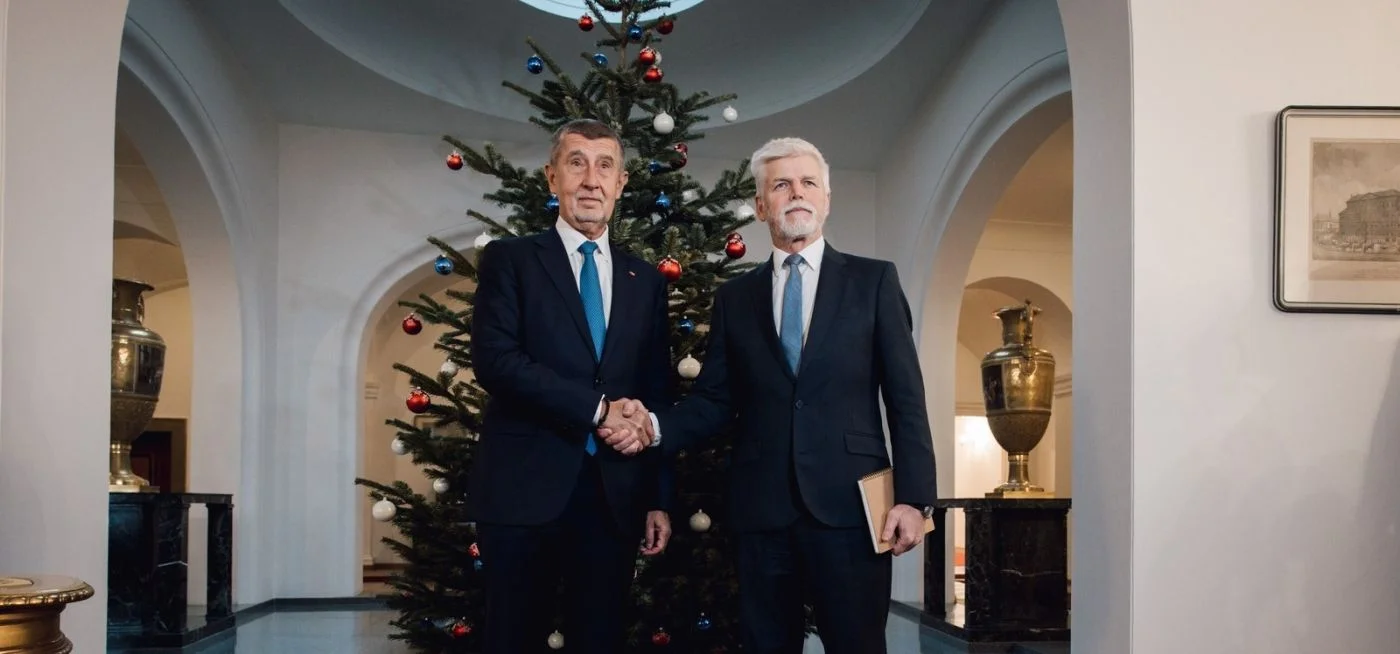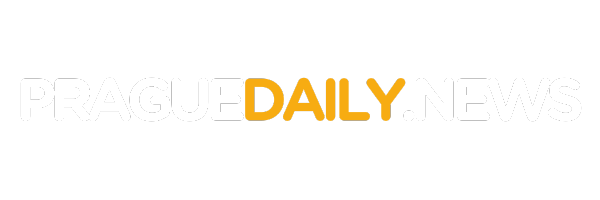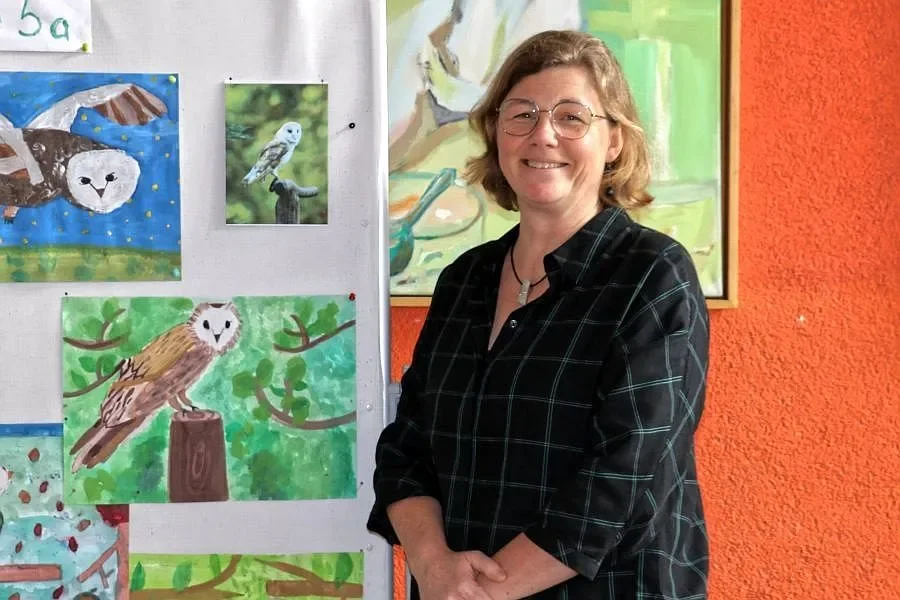
Meri Hanna Budde Mäkinen, the New Head of the German School in Prague
We want to give every child an optimal educational journey
Since February, the Deutsche Schule Prag (DSP) has had a new head, Meri Hanna Budde Mäkinen. She has taken over the leadership of the school in its 35th year and aims to set her own priorities. In an interview with Prague Daily News, she reveals what plans she has and why she chose Prague.
What motivated you to come to Prague and work at the DSP?
There were many reasons behind my decision. On one hand, I had a strong desire to work internationally. I grew up bilingual, speaking both German and Finnish, and raised my children in the same way. I am fascinated by meeting people from other cultures. On the other hand, I am thoroughly impressed by Prague. I already knew this about the city, which is why I specifically applied here.
Do you have experience with international schools?
I have had experience with international schools in several ways. I attended the German School Helsinki for twelve years and also went to the corresponding kindergarten there. After my studies in Germany, I worked at a European school in Warstein, where I was significantly involved in school development. This also included organising international school exchanges.
What sets the DSP apart from other international schools?
The school stands out primarily because of its campus concept. We are part of a network of about 140 German schools abroad. While many schools in this network cover the full range from kindergarten to Abitur (German school-leaving exam), they are often not perceived as a campus. You can see this in the design of the building and the attitude of the staff. Additionally, the geographical proximity to Germany allows for smaller-scale exchanges and even internships. The shared cultural and historical ties between the Czech Republic and Germany cannot be underestimated.
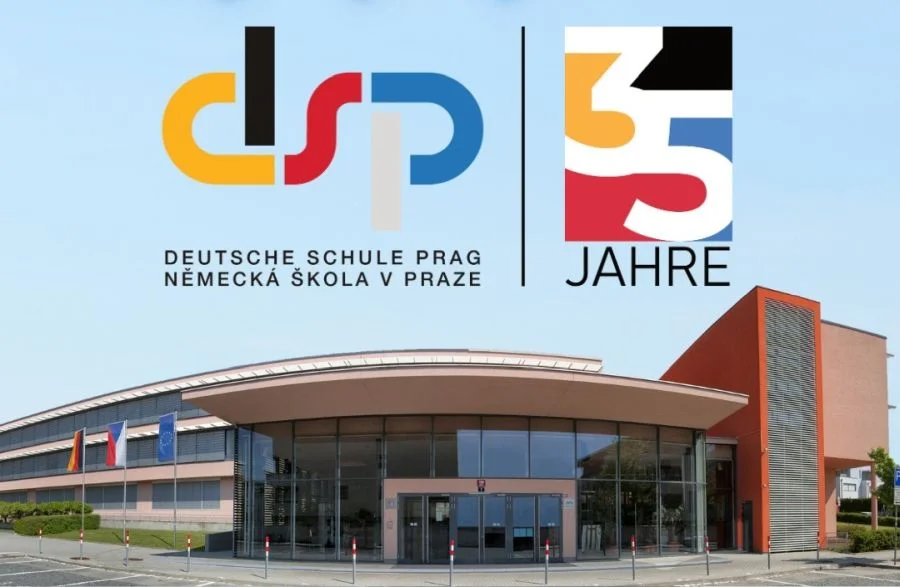
The DSP is celebrating its 35th anniversary this year. What does this mean to you?
I associate two things with this anniversary. Coming from the German School Helsinki, 35 years initially seems like a short period. They already celebrated their 100th anniversary when I was a schoolchild there. For me, 35 years sounds like a modern school, and that was my first impression of the DSP. What I’ve encountered here in terms of modern teaching methods and digitalisation is very progressive, even when compared to other international schools. I think it’s well represented in these 35 years. On the other hand, the year 1990 is historically and politically significant. It stands for new beginnings, encounters, and democracy. The DSP was already part of that, and I experience all of this here every day.
What modern teaching methods does the DSP offer?
We have several modern teaching methods, but I particularly want to highlight “FüPs” (cross-disciplinary project lessons). I’ve just come back from an observation and had the chance to see the concept in action. It involves collaboration between geography and biology, which we’re currently doing in grades 5 and 6. We apply the “Deeper Learning” method here, which, as a teacher of both subjects, I find very convincing. It requires quite a bit of organisational effort from the school, but I think it’s definitely worth it. For us, the school is a place where competencies are taught and learned through content. We place great emphasis on personalised learning, and this is reflected in the FüPs lessons. It’s fascinating to see how children in fifth and sixth grade work independently on various tasks and stations for three hours, always guided and supported by our teachers.
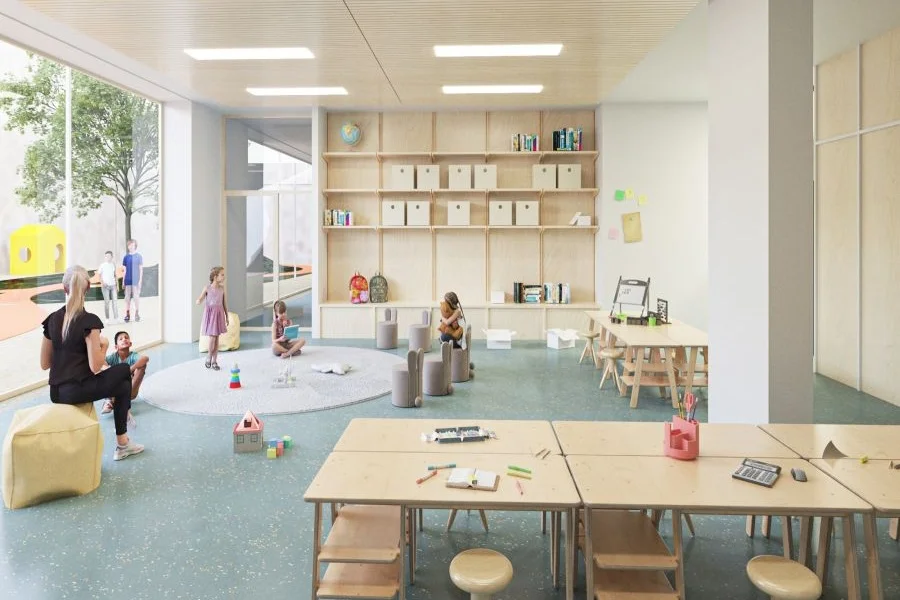
How does the DSP handle digitalisation?
The DSP approaches digitalisation thoughtfully and with open eyes. This means that we are aware of the advantages while not ignoring the disadvantages. We approach it constructively and use digital processes not only in administration and data processing to simplify work processes but also to provide students with appropriate tools to learn independently at an age-appropriate level. This requires a financial investment from the school, which we are happy to make, as well as proper media education. We place a lot of importance on ensuring that students learn to use their school iPads effectively. This also involves educating them about behaviour on social media and using resources for preparing lessons and projects. As a digital model school, the DSP helped shape a concept for the German Central Office for Schools Abroad. Based on the DSP’s experiences, a blueprint for digitalisation in all German schools abroad was created. We are currently involved in a network project related to this.
Is German the only language taught at the DSP?
We see ourselves as a meeting school. This naturally includes not only the primary focus on teaching the German language and culture but also the Czech language and culture. Nevertheless, we interpret the word “meeting” more broadly, as we are a daily meeting place for students from more than twenty different countries. Therefore, foreign languages are highly valued here. You can already notice this in the staff room, where we have native English speakers from America and Australia, but also French speakers, as well as Germans and Czechs.
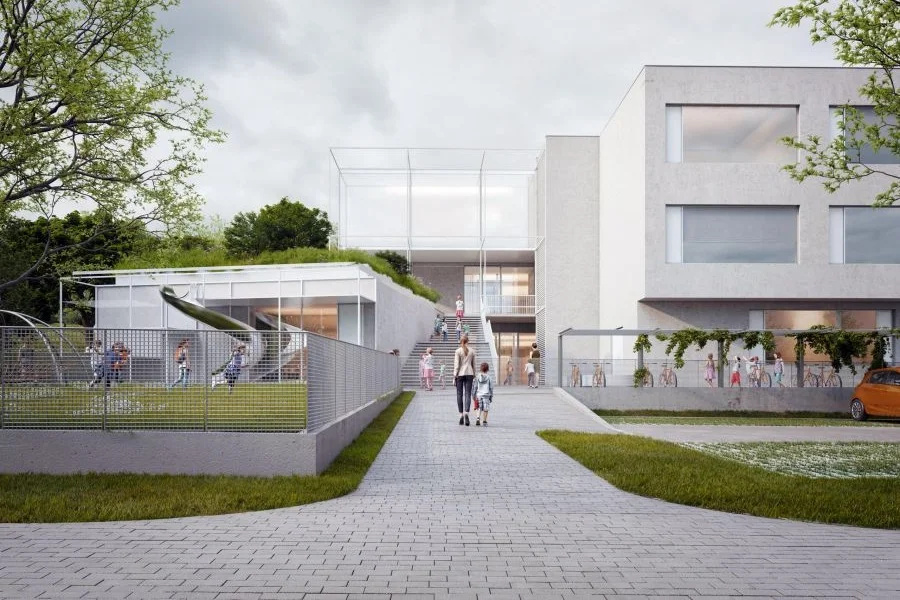
Can you enrol your child after kindergarten?
Yes, that is, of course, possible. We treat all students individually throughout their school years here. Every enrolment involves a personal discussion, during which we assess whether all requirements are met. But we also look at whether the child is likely to have a promising academic career with us. So, it’s not just about reports and language skills but also about a much broader basis. We want to give every child an optimal educational journey.
How will the new building change the school campus in the future?
With the opportunity to build a new building for the primary school and kindergarten, we are in the fortunate position not only to create new space but also to integrate our philosophy of modern teaching into the architecture. The building has been carefully developed with architects and educators. It’s not just the classrooms, which might seem traditional at first glance, that have been taken into account. There are also smaller rooms where children can not only sit at a table and chair but can lie down or sit on cushions or ergonomic furniture. They can also retreat to group rooms and learn there undisturbed. We’ve planned many rooms with glass walls, allowing a view over the neighbouring classes, but they can also be separated with curtains when needed. We’ve fully utilised the incredible opportunity to consider the concepts we’ve already developed in the design.
What are your priorities for your work?
It’s the further development of several focal points of school development simultaneously. What is most important at the moment, as it affects the other points, is the further development and evaluation of personalised learning. Naturally, digitalisation is also a part of that. At the same time, I think democratic education is especially important in these times. This is reflected in both focal points and is connected to cultural exchange, which is more important than ever.
What does working as a headteacher mean to you personally?
For me, working as the headteacher of the DSP means an incredible opportunity to actively support all the aforementioned aspects and also to set my own priorities. I see my role as bringing together the skills, cultural backgrounds, and languages of everyone involved at the DSP and creating a community out of that.
The Deutsche Schule Prag was founded in 1990. It is an accredited German school abroad, supported by both the Federal Republic of Germany and the Ministry of Education, Youth, and Sports of the Czech Republic. Further information about the German School Prague can be found at www.dsp-praha.org.
Deutsche Schule Prag
Schwarzenberská 700/1, Prag 5
Website | Facebook | Instagram
More from Politics & Education
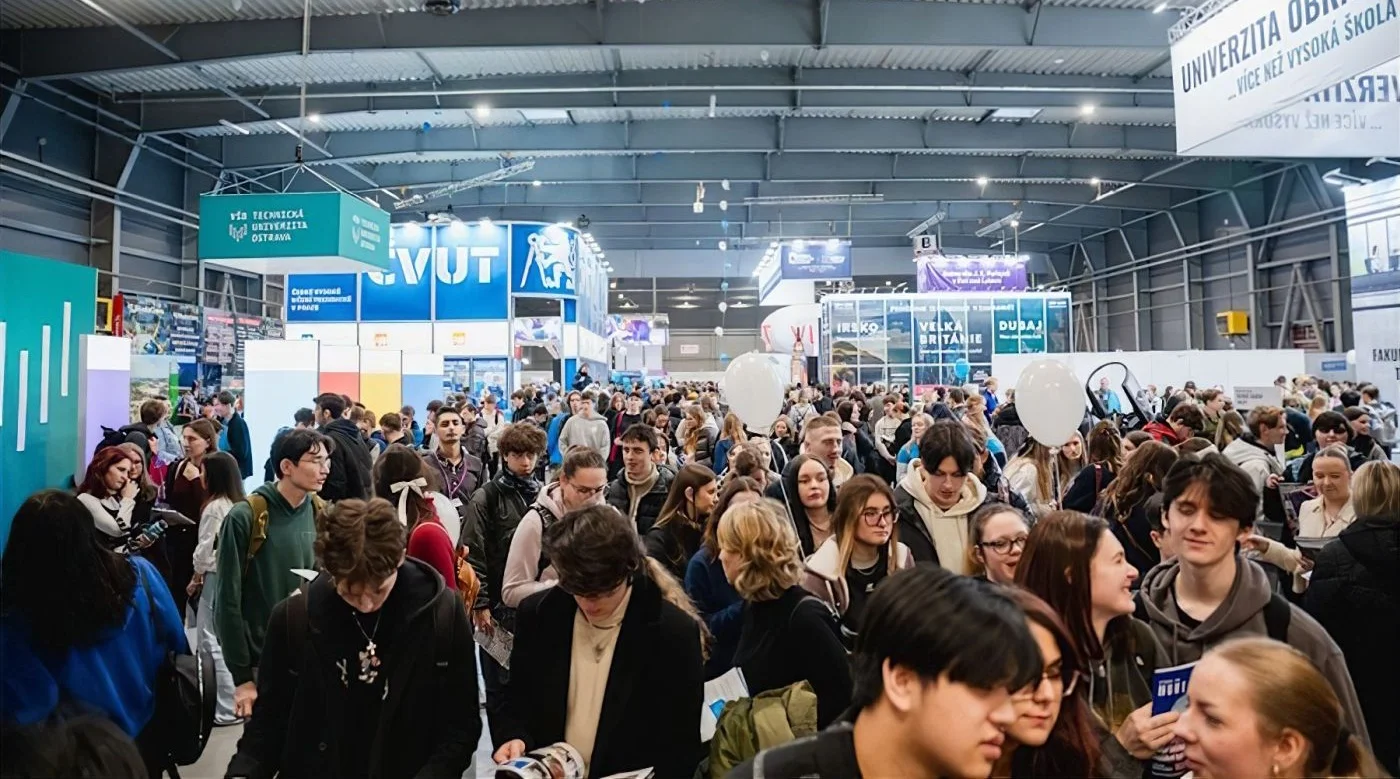
Gaudeamus Prague 2026: European Fair for Higher Education and Lifelong Learning
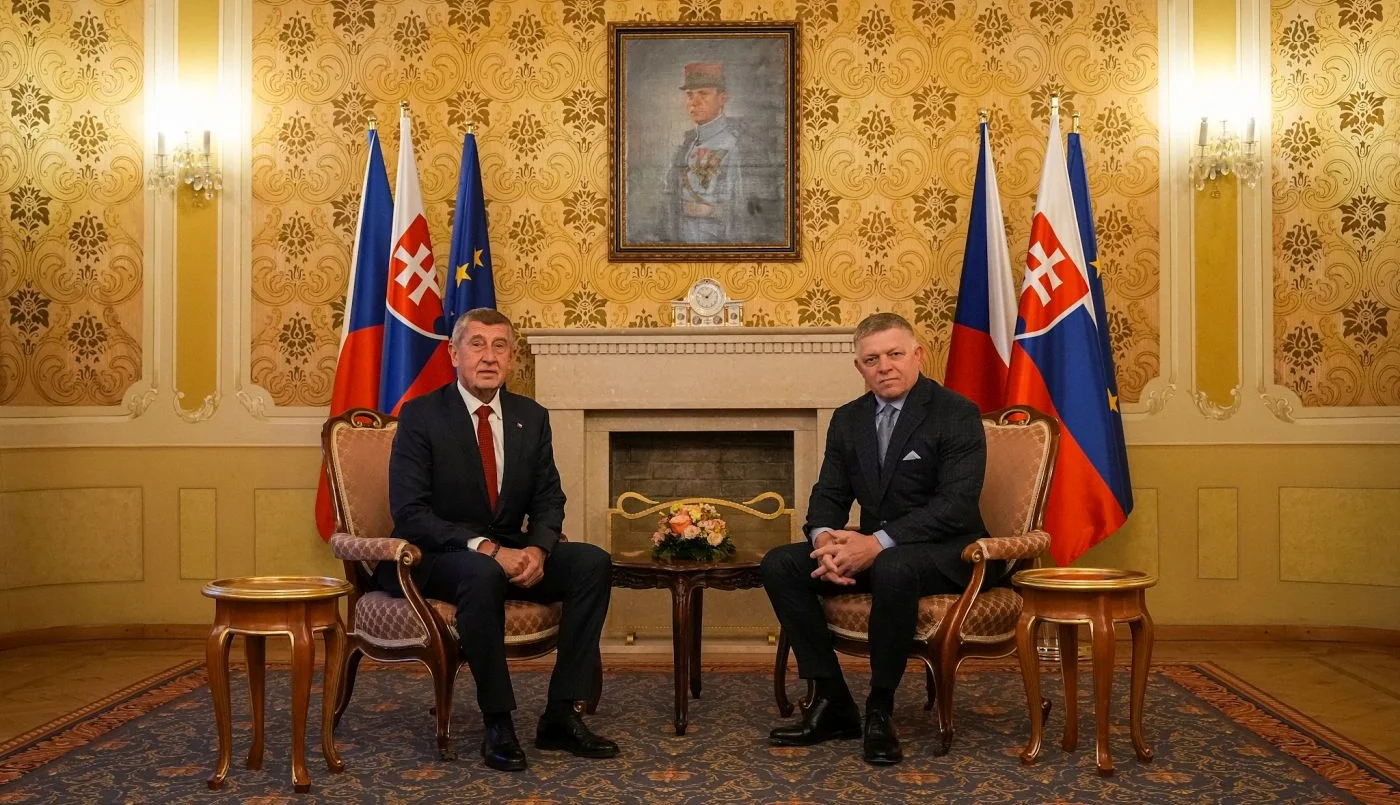
Prime Minister Babiš in Bratislava: Czech Republic and Slovakia plan first joint government meeting in years
